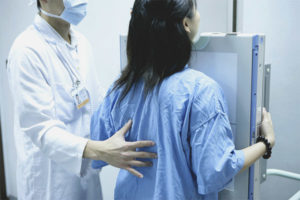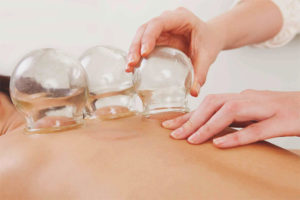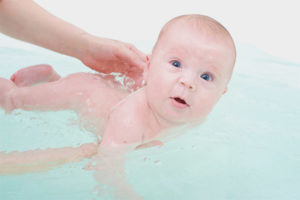The content of the article
The question of the possibility of visiting the bath in ancient times was not even raised. Since the answer to it would be definitely positive. Previously, people used to go to the bathhouse not only to wash themselves, but also to relax, and also to cleanse their bodies and get a charge of vitality. Moreover, women in an interesting position did not lag behind. Now, not every expectant mother would risk a steam bath, knowing that the body is not always able to withstand such tests. So, are pregnant women allowed to go to the bath? If so, what recommendations should be followed? To whom it is absolutely impossible to go to the bath? Let's try to find answers to all these questions.
Bath during pregnancy
For women who have no health problems, you can visit the bath. You can not do this to future mothers,in which pregnancy is difficult: bleeding occurs, there is a risk of spontaneous interruption or delivery before the prescribed period. Also a contraindication to visiting the bath is preeclampsia - a complication that occurs in late pregnancy and is accompanied by an increase in blood pressure. Even if there are no problems, anyway, before going to the bath, you should consult with your doctor.
A visit to the steam room favorably affects the respiratory system, improves blood circulation, so it is considered an excellent preventive measure against colds. Also, the bath helps to get rid of the effects of acute respiratory diseases - residual cough and runny nose. In addition, it is an excellent method to strengthen the immune system. However, the effect of steam may be dangerous, especially for those who are not prepared for it. Immunity does not improve, but on the contrary, a person can get sick. Therefore, after a bath to take a cool shower or dive into the pool should not be everyone. By the way, it is also undesirable for mothers to stay in the steam room for more than a few minutes. And if the state of health worsens, you should immediately leave.
Experts advise women who are carrying a child to be careful in many ways:
- not be subjected to increased physical exertion.
- avoid stressful exposure.
Refrain from attending fitness and other sports training, instead of going to special classes for expectant mothers;
try to protect themselves from the influence of harmful factors.
The last point can also include a visit to the bath, as the temperature in the steam room is always elevated. At the beginning of pregnancy, being in a bath is a danger both for the woman and for her child, even if the pregnant woman does not suffer from any diseases.
In later periods, the risks are reduced - gynecologists are less likely to object to visiting a pregnant bath for a period of 13-27 weeks.
What is dangerous bath during pregnancy
Staying in a steam room carries risks in situations where a woman has problems with carrying a pregnancy. If there is a threat of spontaneous abortion (or she was in the early period), then it is extremely undesirable to visit the bath. The reasons for such a ban are as follows:
- Changes in hormone levels.This process itself is stressful for the body, and the effect of elevated temperature increases the load.
- The heart rate in the bath is accelerated (the blood volume of the expectant mother is twice as much as usual), and it is very difficult to cope with such an organ.
- A pregnant woman may feel a lack of air, she may feel dizzy, since breathing in a bath can be difficult, especially if there is no fitness.
To go to the bathhouse or not, the expectant mother should decide herself, carefully weighing all the pros and cons, and also consult with the doctor who is leading the pregnancy. If the body is prepared, tests are normal, there is no threat of interruption, the doctor will most likely give permission.
But be aware that there are some limitations:
- Do not go pregnant in a bath if she does not feel very well.
- You can not sit in the steam for more than ten minutes.
- It is necessary to control the temperature, it should not exceed 70 ° C.
- The head should be wearing a special headdress.
- During your stay in the bath you need to drink more: juice or warm tea.
First Trimester Bath
The period from the moment of attachment of the embryo into the uterine cavity until the end of the first trimester (12 weeks) is considered by doctors to be the most dangerous. Even a seemingly harmless factor can lead to miscarriage at this time:
- abrupt changes in climatic conditions (for example, traveling to another country);
- swimming in cool water;
- transferred strong psycho-emotional stress;
- overheating in the sun.
It happens that a woman, unaware that she is pregnant, has visited a bath, and immediately there is a threat of interruption. Under the influence of elevated temperature, the cervix is opened and miscarriage begins. If there is a hematoma (which the expectant mother cannot guess until she visits the doctor, since she apparently doesn’t manifest herself in any way) the risk of abortion increases significantly.
In the first months of pregnancy, it is dangerous to stay in the steam room - the restructuring of the body is not yet completed, therefore it is necessary to protect it and protect it from the effects of temperature fluctuations. Many bath lovers like to dip into cool water after a steamy bath. Pregnant women are strictly forbidden to do this.Even if the future mother came to the bath, it is necessary that the body cools down gradually.
Steam room for pregnant women in the first trimester is an event that even women whose body is already accustomed to such procedures should refrain from abstaining from.
Second Trimester Bath
Since the beginning of the second trimester of pregnancy, when the main internal organs and systems of the fetus have already formed, a woman is already allowed a lot, which could not be done in the early stages - swim in the sea, make long trips, go to the bath.
Temperature drops are no longer a serious danger, especially if the woman’s body is accustomed to it. Therefore, the second trimester of pregnancy is not a contraindication to visiting the steam room. However, you should refrain from this if you have the following problems:
- predisposition to pressure increase;
- recurrent chronic diseases;
- occasional uterine tone.
Bath in the third trimester
When there are several weeks left until the planned date of birth, experts recommend that a woman stop attending a bath or at least minimize the timestay in the steam room.
Bath in the last months of pregnancy can harm the health of the expectant mother. By the beginning of the third trimester, an increase in the blood volume of a woman almost doubles, which leads to the heart experiencing increased stress. At high temperatures, the functioning of the organ may be impaired. This is dangerous if the following consequences occur:
- the development of preeclampsia;
- bleeding;
- placental abruption.
In addition, the last months of pregnancy - a period in which almost all women suffer from problems with veins of varying severity (hemorrhoids, varicose veins). Staying in a hot steam room will exacerbate the situation.
Bath is closer to the end of pregnancy - an event associated with high risk, therefore it is allowed only to those who do not have any health problems and regularly attend a steam room for many years.
Video: bath and sauna during pregnancy











To send